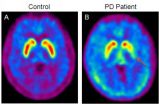(Press-News.org) TORONTO, October 19, 2010 – Pharmaceutical promotion may cause doctors to prescribe more expensively, less appropriately and more often, according to a new study co-authored by York University professor Joel Lexchin.
The findings, published today in the journal, PLoS Medicine, offer a broad look at the relationship between doctors' prescribing habits and their exposure to information provided by drug companies. Researchers analyzed 58 separate studies of this phenomenon from Canada, the United States, Europe and Australia, dating from the 1960s.
"Many doctors claim they aren't influenced by the information provided by pharmaceutical companies. Our research clearly shows that they are – and the influence is negative," says Lexchin, a professor in the School of Health Policy & Management in York's Faculty of Health and an emergency physician in Toronto.
"Unfortunately, patients are the ones getting a raw deal. If doctors are inundated with advertising from brand name companies, they are more likely to prescribe that brand name, regardless of whether it's best for the patient," Lexchin says.
Overall, researchers found no evidence that drug companies' promotional efforts improve prescribing behaviour in any way. All but one of the studies suggested that exposure to promotional information was associated with lower prescribing quality; others detected no association. Findings also show that promotional information led to more frequent prescribing; studies dealing with this correlation either showed a spike in prescribing or detected no association. Researchers also established a link between promotion and higher prescribing costs.
Lexchin says Canadian drug companies spend big money on marketing their products to physicians, to the detriment of other priorities such as research and development.
"In Canada, companies are estimated to be spending anywhere between $2.4 and $4.75 billion annually on promotion, one of the major reasons why spending on brand name drugs was rising at a rate of just under 10 per cent annually until two years ago," he says.
A limitation of the research is that most studies were observational in nature, meaning that the majority of physicians who participated were not randomly selected.
"Although we didn't find any evidence of improvements in prescribing due to promotional information, that doesn't entirely exclude the possibility that prescribing might sometimes be improved," Lexchin says. "As a precaution, we recommend that physicians avoid exposure to the information provided by pharmaceutical companies."
INFORMATION:
The study, "Information from pharmaceutical companies and the quality, quantity and cost of physicians' prescribing: a systematic review," was led by Geoffrey Spurling, professor at the University of Queensland, Brisbane, Australia.
York University is the leading interdisciplinary research and teaching university in Canada. York offers a modern, academic experience at the undergraduate and graduate level in Toronto, Canada's most international city. The third largest university in the country, York is host to a dynamic academic community of 50,000 students and 7,000 faculty and staff, as well as 200,000 alumni worldwide. York's 10 Faculties and 28 research centres conduct ambitious, groundbreaking research that is interdisciplinary, cutting across traditional academic boundaries. This distinctive and collaborative approach is preparing students for the future and bringing fresh insights and solutions to real-world challenges. York University is an autonomous, not-for-profit corporation.
Media Contact:
Melissa Hughes, Media Relations, York University, 416 736 2100 x22097, mehughes@yorku.ca
Docs not immune to drug marketing: Study co-authored by York U prof
2010-10-20
ELSE PRESS RELEASES FROM THIS DATE:
Research brings cure for Parkinson's disease a step closer
2010-10-20
An international collaboration led by academics at the University of Sheffield, has shed new light into Parkinson's disease, which could help with the development of cures or treatments in the future.
The collaboration, which was led by Professor Peter Redgrave from the University's Department of Psychology, suggests that many of the problems suffered by patients with Parkinson's disease - difficulties in initiating actions, slow laboured movements and tremors – can be understood in terms of damage to control circuits in the brain responsible for habits.
The analysis, ...
Culturally inspired mobile phone games help Chinese children learn language characters
2010-10-20
Mobile phone-based games could provide a new way to teach basic knowledge of Chinese language characters that might be particularly helpful in underdeveloped rural areas of China, say researchers in Carnegie Mellon University's Mobile & Immersive Learning for Literacy in Emerging Economies (MILLEE) Project.
Earlier this year, researchers reported that two mobile learning games, inspired by traditional Chinese games, showed promise during preliminary tests with children in Xin'an, an underdeveloped region in Henan Province, China. The researchers from Carnegie Mellon, ...
Inhaling nitric oxide eases pain crises in sickle cell patients
2010-10-20
AUGUSTA, Ga. – Inhaling nitric oxide appears to safely and effectively reduce pain crises in adults with sickle cell disease, researchers report.
A study of 18 patients in Atlanta, Chicago and Detroit showed that the nine inhaling nitric oxide for four hours had better pain control than those receiving only the standard self-administered morphine, said Dr. C. Alvin Head, chairman of the Department of Anesthesiology at the Medical College of Georgia School of Medicine.
"This study shows that you can breathe the gas and have less pain, which is the major reason sickle cell ...
Paraquat resistance discovered in major weed
2010-10-20
Scientists at the University of Adelaide have discovered new cases of herbicide resistance in annual ryegrass, one of the world's most serious and costly weeds.
For the first time, researchers have found that annual ryegrass has developed resistance to paraquat, the second most important "knockdown" herbicide used by cropping farmers.
Weed management experts Dr Peter Boutsalis and Associate Professor Christopher Preston, from the University's Waite Research Institute, made the discovery in samples taken from two separate farming properties near the South Australian ...
How green is your campus?
2010-10-20
Williamsburg, VA —October 19, 2010— Corporations and individuals alike are increasingly focused on "going green," in an attempt to reduce their carbon footprint and impact on the environment. It is questionable whether higher education institutions are adopting sustainable practices at the same rate, despite large consumption rates of energy and water, among other resources. In the first study of its kind, Contemporary Economic Policy presents an article which compares the factors that drive colleges to adopt sustainable practices to the factors that motivate for-profit ...
Inflammatory breast cancer focus of new report
2010-10-20
ATLANTA—October 19, 2010—A rare and deadly form of breast cancer that often goes unrecognized by clinicians and patients alike is the focus of a new report from leading researchers. Inflammatory breast cancer (IBC) has made headlines as an unrecognized and misunderstood form of breast cancer. It has a younger age of onset, progresses rapidly, and has lower overall survival compared to other breast cancers. For the new report, leading researchers led by Massimo Cristofanilli, M.D., of Fox Chase Cancer Center in Philadelphia outline IBC's unique clinical presentation, pathology, ...
Children's best friend
2010-10-20
Montreal, October 19, 2010 – Dogs may not only be man's best friend, they may also have a special role in the lives of children with special needs. According to a new Université de Montreal study, specifically trained service dogs can help reduce the anxiety and enhance the socialization skills of children with Autism Syndrome Disorders (ASDs). The findings published this year in Psychoneuroendocrinology may be a relatively simple solution to help affected children and their families cope with these challenging disorders.
"Our findings showed that the dogs had a clear ...
Conserving resources: Producing circuit boards with plasma
2010-10-20
Flexible circuits can be found in many devices where space and weight considerations are dominant in the design of electronics: in cars, in cameras and video equipment, in mini-computers for athletes or in inkjet printers. And the market continues to grow: according to the business consultancy Frost & Sullivan, sales in this area will grow to more than $16 billion by the year 2014.
At K 2010, the trade fair for plastics in Düsseldorf, Germany, scientists from the IST in Braunschweig will unveil a new reel-to-reel technology for the production of flexible circuits and ...
Consumer sentiment shaped by differing cultural attitudes toward power
2010-10-20
CHAMPAIGN, Ill. – In the battle of egos, Donald Trump vs. Hugo Chavez might be a draw. But as symbols of power, each resonates differently with different cultures, as cultures nurture different views of what is desirable and meaningful to do with power, according to new research by a University of Illinois marketing expert.
Sharon Shavitt says the relation between culture and one's concepts of power emerge from one's cultural orientation, and how that culture shapes one's beliefs, attitudes and goals.
"People's views of powerful people and what powerful people are supposed ...
Bacteria gauge cold with molecular measuring stick
2010-10-20
HOUSTON -- (Oct. 19, 2010) -- Some bacteria react to the cold by subtly changing the chemistry of their outer wall so that it remains pliable as temperatures drop. Scientists identified a key protein in this response mechanism a few years ago, but the question of how bacteria sense cold in the first place remained a mystery. Based on a study by scientists at Rice University and Argentina's National University of Rosario, the answer is: They use a measuring stick.
The study, published in the September issue of Current Biology, involved a series of intricate experiments ...



